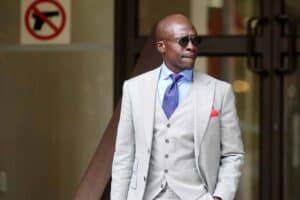The Zondo Commission provided a window through which the public can see into the dirty secrets of the ANC during its worst decade in power

Chief Justice Raymond Zondo released part four of the state capture report on Friday – and it’s not the last. But it is probably the most damning report to come out of a commission that was supposed to last a mere two years but, almost four years later, it is still part of South Africa’s political landscape.
The most important part of this fourth report is not the details that it provides about how the Guptas captured Eskom or Denel, the most important part is the question that Zondo asks: “Where was the ANC as the Guptas took control of important state-owned-enterprises?”
The commission can easily be dismissed as one of the most expensive, yet ineffective, exercises to be undertaken by this country’s relatively young democracy.
RELATED: Zondo: ANC ‘should be ashamed of themselves’
There were high hopes for it when then public protector advocate Thuli Madonsela forced the central figure in state capture, Jacob Zuma, to set up a commission that would investigate how he allowed state capture to happen.
The commission represented a new beginning, a new dawn that was also trumpeted by then-incoming President Cyril Ramaphosa. And four years later that dawn hasn’t broken, not a single one of the main characters in this country’s biggest heist since 1994 has gone to prison.
Should the country despair though? The National Prosecuting Authority (NPA) has been at pains in the past month to assure the public that it has been beefing up certain areas in its structures to now start prosecuting those who have been fingered by Zondo’s commission.
But based on its track record since the commission started, no one is holding their breath. The NPA did not have to wait long to start prosecuting the main players in state capture. In fact, the long delay between the exposure of the crimes at the commission and the prosecution of the individuals involved is what has made the commission look like a fierce-looking, but a toothless, dog.
But the country should not despair, whether or not successful prosecutions eventually happen. The commission might have unearthed convoluted schemes that were set up to suck the Treasury dry but its mere setting up was a masterstroke.
The chief justice himself acknowledges that certain events by themselves were a lucky throw of the dice for the country, like the election of Ramaphosa to lead the ANC. Without that single event, the country would be in an even more terrible state than it already is. This is exactly what the commission has done for South Africa. It provided a window through which the public can see into the dirty secrets of the ruling party during its worst decade in power.
And the chief justice asked that one question that every voter should be asking when they next go to the polls: Where was the ANC during state capture? The answer is a simple one, they were on the other side of the window that the public was meant to be seeing through.
But instead of cleaning the window to allow the transparency that Nelson Mandela promised in his only term in office, they were throwing mud at that window. They not only made it difficult for the public to see, but they also provided support and protection to those looting state coffers. Through countless motions of no confidence in their president, they voted to protect him.
The simplest answer to Zondo’s biggest question is: the ANC was aiding and abetting state capture. If you don’t find a way to make money while you sleep, you will work until you die.






